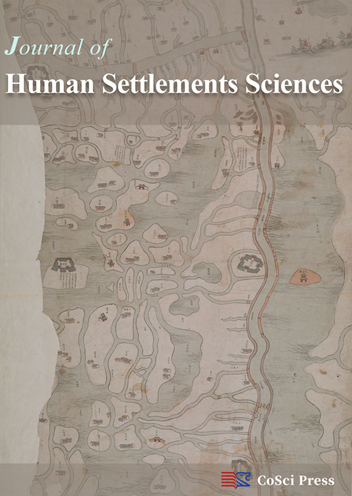JHSS operate a single anonymized peer review whereby the names of the reviewers are hidden from the author. All research articles, reviews, and most other article types, published in JHSS undergo peer review. This usually involves review by at least two independent, expert peer reviewers. All manuscripts will be checked for plagiarism using the iThenticate software to detect instances of overlapping and similar text by the in-house editor.
All submissions to JHSS are first reviewed for completeness and only then sent to be assessed by an Editor who will decide whether they are suitable for peer review. Where an Editor is on the author list or has any other competing interest regarding a specific manuscript, another member of the Editorial Board will be assigned to oversee peer review. Editors will consider the peer-reviewed reports when making a decision, but are not bound by the opinions or recommendations therein. A concern raised by a single peer reviewer or the Editor themself may result in the manuscript being rejected. Authors receive peer review reports with the editorial decision on their manuscript.
Peer reviewer selection is critical to the publication process. It is based on many factors, including expertise, reputation, specific recommendations, conflict of interest and previous performance. Speed, thoroughness, sound reasoning and collegiality are highly desirable.
- Editor(s) are expected to obtain a minimum of two peer reviewers for manuscripts reporting primary research or secondary analysis of primary research.
- Editors are strongly encouraged to consider geographical regions, gender identities, racial/ethnic groups, and other groups when inviting peer reviewers.
- When submitting the manuscript, the author(s) may be asked to suggest 2-3 potential peer reviewers. The editors will not necessarily invite the suggested reviewers but these suggestions can help speed up the peer review process.
- Peer review reports should be in English and provide constructive critical evaluations of the authors’ work, particularly in relation to the appropriateness of methods used, whether the results are accurate, and whether the conclusions are supported by the results. Editorial decisions should be based on peer reviewer comments that meet these criteria rather than on recommendations made by short, superficial peer reviewer reports which do not provide a rationale for the recommendations.
- Manuscripts that do not report primary research or secondary analysis of primary research, such as Editorials, Book Reviews or Commentaries, may be accepted without peer review. Such manuscripts should be assessed by the Editor(s) if the topic is in the area of expertise of the Editor(s); if the topic is not in area of expertise of the Editor(s), such manuscripts should be assessed by at least one independent expert reviewer or Editorial Board Member.
Potential peer reviewers should inform the Editor of any possible conflicts of interest before accepting an invitation to review a manuscript. Reviewers should decline to review manuscripts with which they believe they have a competing interest resulting from competitive, collaborative, or other relationships or connections with any of the authors, companies, or institutions connected to the papers. Communications between Editors and peer reviewers contain confidential information that should not be shared with third parties.
1 Invitation to Review
Manuscripts submitted to JHSS is reviewed by at least two experts, who may be volunteer reviewers, reviewer board members, or reviewers suggested by the academic editor during the preliminary check. Reviewers are asked to evaluate the quality of the manuscript and make recommendations to editors as to whether the manuscript should be accepted, revised (major or minor revisions needed), or rejected.
We ask invited reviewers to:
- accept or decline any invitation as soon as possible (according to the manuscript title and abstract).
- recommend alternative reviewers, if an invitation must be declined.
- apply for an extension as soon as possible if more time is required to provide a comprehensive report.
2 Potential Conflicts of Interest
If a reviewer is unsure whether something constitutes a potential conflict of interest, we ask the reviewer to declare any potential conflict of interest and email it to the journal editorial office as soon as possible. Possible conflicts of interest include (but are not limited to):
- Reviewer works in the same institute as one of the authors.
- Reviewer is a co-author, collaborator, co-founder, or has any other academic ties to any of the authors within the past five years.
- Reviewer has a close personal relationship with, rivalry with, or aversion to any of the authors.
- Reviewer may gain or lose financially from the publication of the paper in any way.
- Reviewer has any other non-financial conflict of interest (political, personal, religious, ideological, academic, intellectual, commercial, or any other) with any of the authors.
- Reviewers should disclose any conflicts of interest that may be seen as supporting or opposing the paper or the authors.
Note that if reviewers are asked to evaluate manuscripts they previously reviewed for other journals, this is not considered to be a conflict of interest. In this case, reviewers are encouraged to let the Editorial Office know whether the manuscript has been improved or not compared to previous versions.
3 Peer Review Manipulation
Manipulation of a peer review process is using dishonest or fraudulent practices to prevent or inappropriately influence the independent assessment of a piece of scholarly work by an independent peer, with the goal of influencing the publication record and/or achieving financial gain.
In cases where there is a suspicion or allegation of peer review manipulation, we will follow COPE flowcharts on peer review.
4 Benefits for reviewers
- For each completed peer review, reviewers are eligible for a certain discount on the Article processing charge. The discounts add up, and depending on the number of reviews done, a reviewer may be eligible for a 100 percent discount/waiver on the Article processing charge.
- For each manuscript they review, reviewers receive a Certificate of Reviewing.
- Reviewers with a solid academic track record may apply for Membership in the Editorial Board upon completion of several reviews.
- Reviewers get listed in the annual reviewer's list published on Journal's website to acknowledge the reviewers in the past year.
- Reviewers get recognition from Publons for their peer review contributions.
5 Privacy and Confidentiality
In JHSS, manuscripts must be reviewed with due respect for authors' confidentiality. In submitting their manuscripts for review, authors entrust editors with the results of their scientific work and creative effort, on which their reputation and career may depend. This means you cannot share the contents of the manuscript with anyone without prior authorization from the editor.
Since peer review is confidential, you also must not share information about the review with anyone without permission from the editors and authors.
Information concerning the manuscript (including the content of the manuscript, the status of the review process, peer review comments, and editorial decisions, etc.) must not be disclosed by the editor to anyone other than the author and reviewers. Reviewers should also be careful not to reveal their identities to authors in their comments or in the metadata of reports submitted in Microsoft Word, PDF, or Latex format.
Reviewers and editors must respect the rights of authors, and must not publicly discuss the authors' work or misappropriate their ideas before the manuscript is published. Without the permission of the editor, reviewers are not allowed to make copies of the manuscripts and are prohibited from sharing the manuscript with others.




